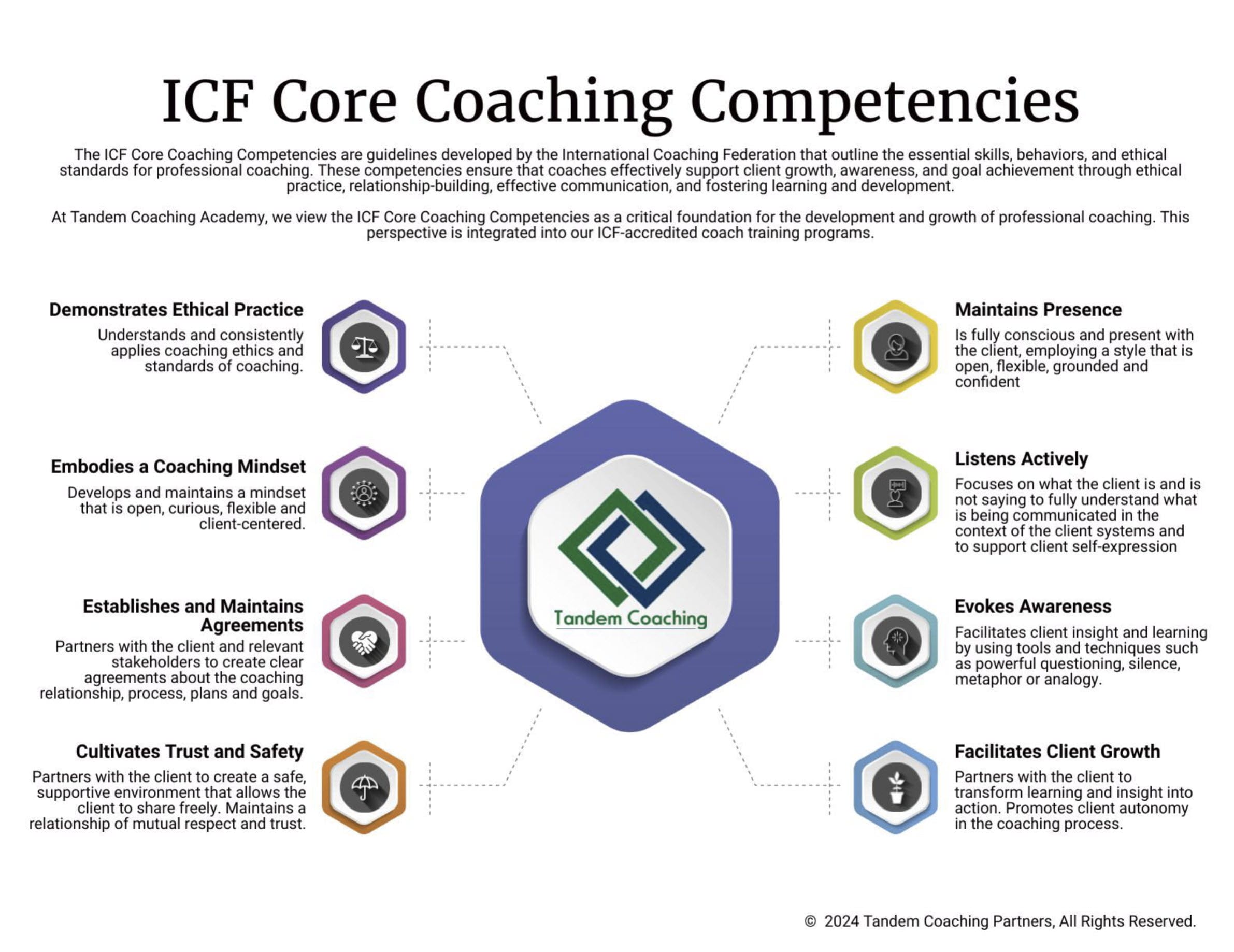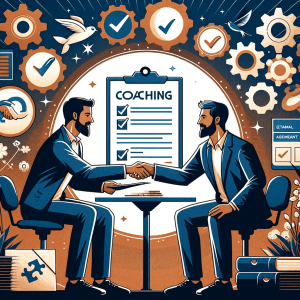“Tell me why you think we should consider you for the CST. I’ve never heard of you, never seen you at any user groups, haven’t met you at any conferences, never seen you speak publicly, and you are making no contributions to the agile community.” Those words spoken by Devon Morris, CST were critical to my path to become a CEC. His advice to me that day was, “If you want to be a CST, do something about it. Get out there. Join the Agile community. Go to user groups. Go to conferences. Speak at conferences. I want to see you and know who you are. And you can never stop coaching. You can’t be a good CST if you aren’t coaching. That’s where everything you know comes from. That’s where you gain your credibility and true expertise that can help people.” Well, Devon, thank you for being hard on me. Thank you for speaking truth to me. Thank you for shining some light on my path. And thank you for inspiring me to go forth and conquer.
I’m writing about the experiences I had on my journey to being a Scrum Alliance Certified Enterprise Coach because it is a long journey that many never complete. There’s no one way to get there because everyone has a different road to walk. My road was about following my heart and always chasing things I was passionate about. My road wasn’t about the application process–it was about the growth and learning I encountered along the way. And I would like to share a few things about my experience that I hope will help others.
Tip #1–Remain humble. Be open to input and advice. Listen, when the reviewers and mentors who have walked this path before you give you feedback. They aren’t picking on you. They want to see you grow and want you to be successful. If they tell you you need more experience, go get it. Don’t get mad… get better!
A couple of months after my conversation with Devon, I heard a fellow consultant and agile coach saying that he had applied for the CSC (the former name for CEC) and had been rejected and he wasn’t thrilled. This sparked my curiosity because I had never heard of the program, so I investigated. What I found was that the CEC was a much better path for me because it was more closely aligned to what I really loved doing — Agile transformation. I pulled the sample application from the website and started looking over the monstrous requirements to be a certified enterprise coach and realized just how spot on Devon’s advice was to me. And just how far from qualified I was.
I knew that I had at least 3 years of hard work ahead of me just to qualify to fill in the application. But the application I held in my hand was more than just a path to a certification. These requirements were the guide that I would follow to learn and grow as an agile coach.
TIP #2 — Be strategic. Get the application and pay close attention to the requirements. If you don’t clearly meet them all, make a plan to close the gap. Don’t be in a hurry to get the certification. Remember, the journey is about your growth as a coach. The goal is to learn to be excellent–not just meet requirements for a certification.
I started investing in the community by speaking at conferences and user groups. I volunteered to mentor people in the agile community and connected to individuals I coached to develop mentoring relationships — all things I completely loved. I learned to surround myself with people who were more experienced than me who I could learn from and I watched them and listened to them. They served as mentors to me and validated my gut instincts and helped me to learn to make better decisions in my coaching. They gave me advice about how I could be better–and they were right!
TIP #3–Invest in yourself. Invest in others. Get involved in the community. Allow others to invest in you. Be with passionate people and learn from them. Remember, this isn’t just a certification. It is a way to validate and confirm that you have solid experience and expertise that can help people and organizations experience success.
One decision I made early on was that I would only work with a client for one year or less. This personal choice allowed me to work with three Fortune 500 companies in three years getting experience in multiple different industries. It provided the opportunity to try new methods and expedite learning through success and failure.
TIP #4–Get experience in multiple organizations and learn from your mistakes. Learn that what works with some won’t work with others. Focus on teams. Focus on management. Focus on C-Level leaders. You must have solid experience in all three to be an effective enterprise coach. Experiment and fail. Learn, learn, learn.
At some point I realized that my skill set needed to be expanded into professional coaching in order to truly serve my clients well. So, over the next 2 years, I took 170 hours of professional coaching training from two different coaching schools. I practiced these skills with individuals, teams, and people outside of the agile industry. I paid mentor coaches to monitor coaching sessions and give me feedback that helped me to sharpen my coaching skills. While focusing on professional coaching, I continued to attend conferences and other classes where I was able to learn how to use these new skills in an agile environment.
TIP #5–Get educated. You must have professional coaching skills in order to coach leaders and to coach organizations effectively around Agile adoptions and transformation. In my work at Tandem Coaching Academy, I have created a few resources that can help you get started.
- Path to Coaching Video Course—If you have not experienced or heard about the professional coaching skill set, a great place to get some introductory information is in this series of over 80 videos that I designed and created to introduce people to the art of professional coaching. These videos can get you off to a good start to understanding what professional coaching is and how it can be helpful in your work as a scrum master and coach. It will also give you a few skills to experiment with.
- Coaching in Agile Environments–This ICF Accredited Coach Training Program is a comprehensive learning experience that includes all the training hours you need to learn the skills and competencies of professional coaching as they apply to your actual work as an enterprise or team coach. It also includes group and individual mentoring, coaching practice/feedback labs, and group supervision. Best of all, upon successful completion of the requirements of this course, you’ll earn certification as a TCA- Associate or Professional Coach and have everything you will need to apply for your ICF ACC or PCC Credential.
- Coaching Human Systems – This advanced ICF accredited ACSTH, ACTP, and CCE program focuses on coaching personal and professional human relationship systems such as teams and organizations, partnerships, and personal relationships. The program builds on the competencies gained to learn professional coaching with individuals and adds to that skill set. The program includes a blend of organizational psychology and other theories combined with tools and techniques that can help agile coaches be more effective in coaching both individuals and organizations.
Periodically, I checked the application that still sat on my desk where I’d laid it when printed and used it to guide me as I filled in the gaps in my expertise and experience. Finally, over three years after my conversation with Devon, I paid the fee and got the official application from Scrum Alliance.
Tip #6–Cherish the experience. Completing part I was a beautiful experience for me. Filling in the information gave me the opportunity to think about all I had done and learned over the past few years. It also helped me to recognize and remember all the people who contributed to who I am today. I felt humbled as listed mentoring relationships I had formed and recalled how amazing it was to watch people grow into great scrum masters, managers, and teams. It was actually a bit overwhelming to see it all written in one place because until that time I didn’t have a complete record of my journey. It took me two months to fill in Part I because I took my time and thought through every section carefully as I filled in the details. After submitting the application, I waited anxiously about a month before getting the approval to move to Part II.
When I read through part II, my heart stopped. I read over every one of those questions about 50 times and they were intimidating because I had no idea how I would answer them. It all seemed very easy until the moment of truth came. So, I just took it one step at a time. I read questions one at a time and internalized them. Before attempting to craft an answer, I thought on each question for days… sometimes weeks… and over a month occasionally.
Tip #7–Take your time to understand the questions and to really understand your position on the answer. There isn’t a time limit to complete the application. Rushing will not serve your purpose. Be honest. Be vulnerable. Don’t look like a superhero. It takes maturity to explain honestly what you have learned through your failures and to show how you recovered to help clients move forward.
I wasn’t sure how many of my references would actually send in a referral, so I contacted extra people just to be sure. It took several months for the recommendations to be sent to Scrum Alliance because people weren’t sure exactly what they should say. I asked them to be completely honest about the quality of my work, the state of their organization when I arrived, how I impacted the organization, and to describe any impact I had on them personally. I also sought references from people at multiple levels who were able to describe my work throughout the layers of the organization.
Tip #8–Decide who the best people for client recommendations are and speak to them early. Clearly explain what the recommendation is for and ask if they will speak on your behalf. When they say yes, clearly spell out what the recommendation needs to contain and how to send it to Scrum Alliance. Ask them to be finished by a specific date. If you do not get a notification from Scrum Alliance by the agreed upon date, follow up and remind them of the need.
Finally, a year after beginning part one, I completed part II. I held on to the application for another two weeks and carefully re-read and revised my answers until I felt completely comfortable with them. After submitting part two, I received a response telling me that one of my answers was too long and that I had too many recommendations. After revising the answer, I had to make a note on the application telling the reviewers that if they chose to only consider two of my client recommendations and one mentor recommendation, which ones I preferred them to consider.
Tip #9–Adhere to word limits and follow all the instructions. Be patient and be professional. Remember, every reviewer is a volunteer who is reviewing applications that can be 40 pages long on their own time in order to help you grow.
Throughout the entire process, about once a month, I received an email showing where my application was. It took about two months for my application to be reviewed once I submitted part II. But finally, I received that long awaited email telling me that they approved my application. One thing that I didn’t know about during the process was that there is a google group for CEC Candidates that you can join to ask questions and even connect with other coaches who will mentor you through the process and give you feedback on your application.
Tip #10–Join the CEC Candidate google group and read the postings. They will give you information that can help you. Ask for a mentor to review your application and give you advice.
The journey to become a certified enterprise coach is long and hard. It is also a journey worth taking. Don’t give up even if you submit your application and it doesn’t get approved right away. Listen to the feedback and go learn more. Remember, what’s really important is that you become an amazing enterprise coach and serve your clients well.
Facebook
Twitter
LinkedIn

Unlock Your Coaching Potential with Tandem!
Dive into the essence of effective coaching with our exclusive brochure, meticulously crafted to help you master the ICF Core Coaching Competencies.
"*" indicates required fields
About the Author
Cherie Silas, MCC
Cherie is a co-founder and the CEO of Tandem Coaching. Her background is in executive, leadership, and agile coaching as well as organizational design.
She has over 20 years of experience as a corporate leader and uses that background to partner with business executives and their leadership teams to identify and solve their most challenging people, process, and business problems in measurable ways.
Read More She has over 20 years of experience as a corporate leader and uses that background to partner with business executives and their leadership teams to identify and solve their most challenging people, process, and business problems in measurable ways.
















